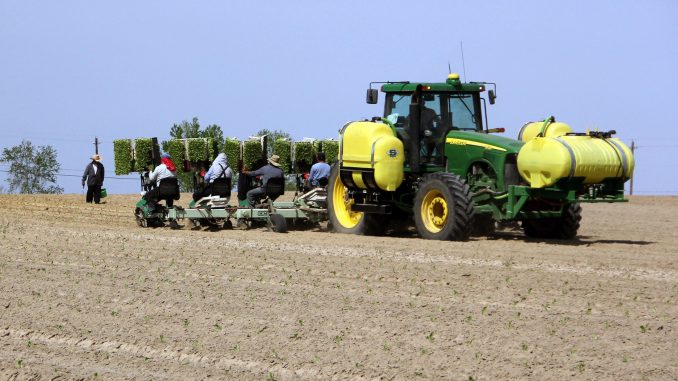
Immigration reform has been discussed, debated and argued for years, but eventually concludes with the same tired result “next year is the year!” To be blunt, fixing our worn-out immigration system does not require a rocket scientist. And this year needs to be the year.When I was still actively farming during the 1970s, 80s, and 90s, most of our workers were American citizens. But during the 90s American workers began taking other types of jobs, and farmers had to react to the change in their labor pool by hiring more foreign-born workers. The problem is that farmers aren’t magicians eventually they reach a breaking point. And if we aren’t there yet, we’re getting close.A few years ago a study was done that looked at the H-2A visa program in North Carolina. As you may know, the visa program has many requirements, including: the employer must advertise the job locally; the employer must hire American citizens if they want the jobs; the employer must pay a federally established hourly wage, which varies by state, and in 2017 ranged from $10.38 to $13.79 (it’s $11.27 in North Carolina). In 2011, North Carolina farmers requested 6,500 seasonal workers through the H-2A visa program. That year, 268 Americans were interested in the jobs, of which 245 were hired. Of those 245, only 163 actually showed up for the first day of work, and only seven finished the growing season. That’s about 0.1 percent.Imagine trying to build a road if only 0.1 percent of workers stayed with the project. How bad would your commute be then? Imagine trying to run a school if 99.9 percent of teachers quit before the end of the school year. What kind of education would our children receive?Because American farmers have come to rely so heavily on immigrant labor, their ability to keep feeding us is significantly connected with immigration policy. As a nation, we are incredibly lucky to have an abundant supply of healthy, affordable food and fiber. And as a state, we are also blessed with climate and soil that supports one of the most diverse agriculture sectors in the U.S.When farmers don’t have the workers they need at the times they need them, we all suffer. Produce rots in the field, costing farmers thousands of dollars, limiting the supply of fresh and local produce, and indirectly affecting the price and quality of your food.Some will argue that farmers should replace workers with machinery, ignoring the fact that many fruits and vegetables must be harvested by hand. Instead of spending hundreds of thousands of dollars on equipment, some farmers will likely switch from growing fruits and vegetables to less labor-intensive crops. While practical, this decision won’t help address rising consumer demand for fresh, local produce: between 2000 and 2012, Americans ate 10.5 percent more fresh produce while U.S. production only rose by 1.4 percent, increasing fruit and vegetable imports by 38 percent.Today’s farmers have made an art out of doing more with less. We like to talk about how one farmer feeds 155 people, compared with only 26 back in 1960. So it should come as no surprise that farmers have found ways to adapt to changing trends in the agriculture labor force.But it would be short-sighted to assume that farmers will continue to succeed in an environment that fails to meet their basic need for workers. Every job on the farm creates about three more in other industries, supporting about one out of every six jobs in North Carolina. These economic impacts are particularly tough on rural communities that rely heavily on agriculture.We cannot afford to push off immigration reform any longer.I’m calling on the entire North Carolina Congressional delegation to face this challenge head-on and to find a solution that provides stability for our state’s largest economic driver.Larry Wooten is president of the North Carolina Farm Bureau.



